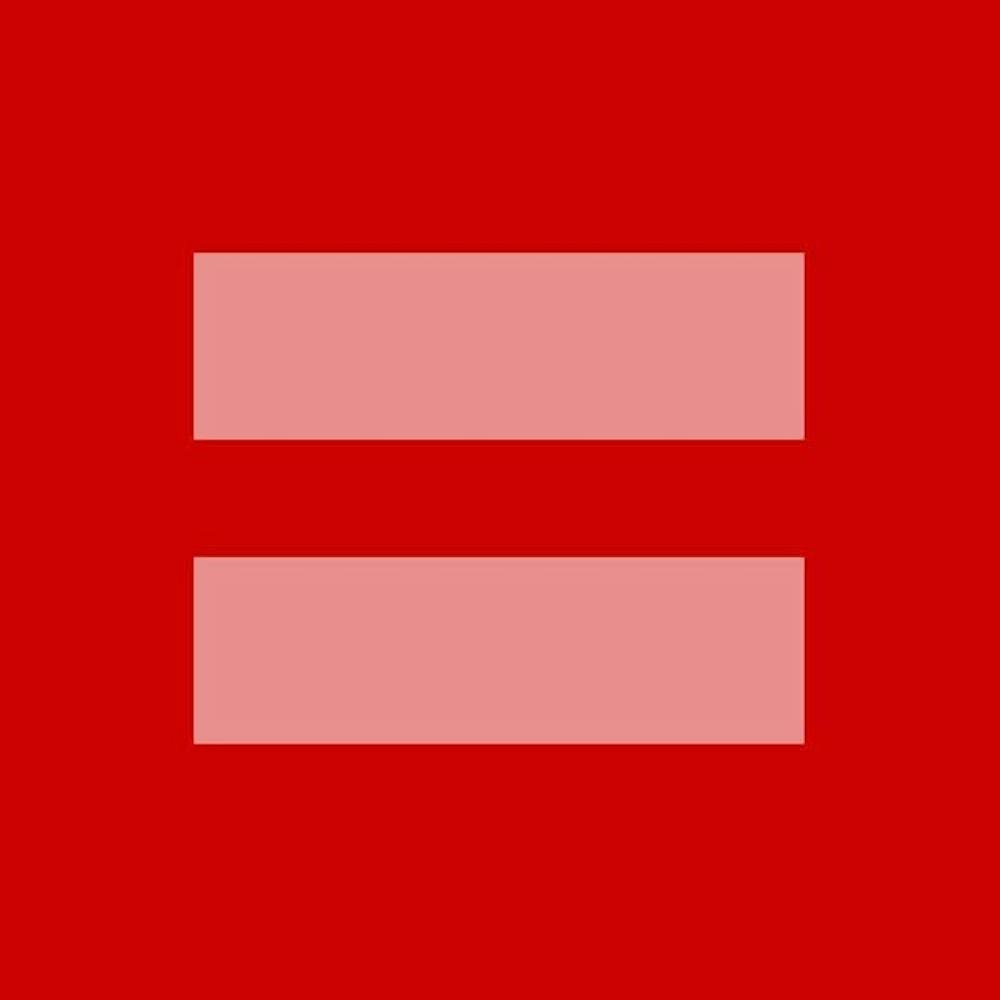On Tuesday, March 26, the Human Rights Campaign (HRC) asked people to change their Facebook profile pictures to a pink-on-red equal sign avatar to show support for marriage equality as the Supreme Court met to decide the future of same-sex marriage in the United States.
In accordance to the Supreme Court hearings on Proposition 8, California's ban on same-sex marriage, approximately 2.7 million people changed their profile photos, according to data analysis published by Eytan Bakshy, a researcher on the Facebook Data Science Team.
The following day, the court heard arguments on the related question of whether the 1996 federal Defense of Marriage Act (DOMA), which denies federal benefits to married same-sex couples, should be overturned.
Many University of Richmond students changed their profile pictures to show support, including junior Lee Oberg. Facebook is a source that some people check numerous times a day, Oberg said, and is a great way to communicate a message and share a photo with hundreds of friends at once.
Junior Lydia Wang, member of Diversity RoundTable and Amnesty International, said that she believes the climate on campus has changed from a community in which hostility toward those of the LGBTQ community was more heard of to one that was perhaps more tolerant of its diverse individuals.
Wang said: "I definitely saw my Facebook 'turning red' in the days leading up to the Supreme Court decision on LGBTQ rights, but most of the individuals changing their profile pictures or liking these photos were those already invested in the matter or have already voiced their opinions on social justice issues.
"However, some of the marriage equality photos did surprise and touch me because of the outpour of support and solidarity for the LGBTQ community. The solidarity in these small acts had a larger impact than was probably expected by those changing their profile pictures or liking them," she said.
The university has been supportive in the efforts of the LGBTQ community, Wang said, with the introduction of the LGBTQ Lounge, revamping the LGBTQ Living and Learning Community and Q-Community for next year and the addition of Ted Lewis as the associate director of common ground for the LGBTQ campus life. Even so, although the university recognizes the diversity of its community, Wang said the majority of students still maintained a certain level of apathy in social justice issues.
"There is definitely work to be done in terms of creating a fully inclusive campus community," Wang said, "but our visibility is heightened."
Junior Ashley Colon said although changing a Facebook picture is not the most pro-active thing a person can do, it is great that LGBTQ people can know that they have allies. Colon said that she wore a rainbow key chain just in case there was one closeted person on tour groups or on campus who might see it and go, "Thank god, I'm not the only one!"
Colon said that she did not find the Richmond community to be unsupportive, but rather found that people at this age tend to be uninspired to do anything, especially when social issues are not something that affect their every day lives. "Straight, white, middle class and preferably male? You're all set," she said. "Most people through all classes, creeds and races in America have a, 'Well if it doesn't affect me!' attitude."
Richmond's campus in Colon's experience has been receptive to LGBTQ events, with few outliers, she said.
Enjoy what you're reading?
Signup for our newsletter
Junior Dana McLachlin, who compiled LGBTQ History at Richmond with assistance from the Office of Common Ground and the support of a summer research fellowship, said she found the recent developments surrounding Proposition 8 to be very positive and a sign of our society's increasing acceptance of diverse expressions of sexuality.
"I am also heartened to see so many of my friends within the Richmond community to change their profile pictures in a visible sign of support for LGBTQ individuals," she said. "That being said, I think it's important to question why marriage rights specifically get so much attention, time and money, and whether or not such activism really gets to the root of why LGBTQ people face discrimination."
McLachlin said she was glad that the Richmond community was supportive of gay marriage, yet wished there was more support and space for the many other issues queer individuals face beyond marriage. Through her research, McLachlin said she was struck by the diversity and breadth of experiences of LGBTQ individuals at Richmond, as well as the mutability of LGBTQ acceptance.
"Things don't go from 'bad' to 'good,'" she said, "but rather there is constant tension, flux and change. I found this really inspiring since it demonstrated that things are not set in stone, but that I can continually work to create the community I would like to see and build positive relationships and environments on campus."
Contact reporter Jessica Racioppi at jessica.racioppi@richmond.edu
Support independent student media
You can make a tax-deductible donation by clicking the button below, which takes you to our secure PayPal account. The page is set up to receive contributions in whatever amount you designate. We look forward to using the money we raise to further our mission of providing honest and accurate information to students, faculty, staff, alumni and others in the general public.
Donate Now



